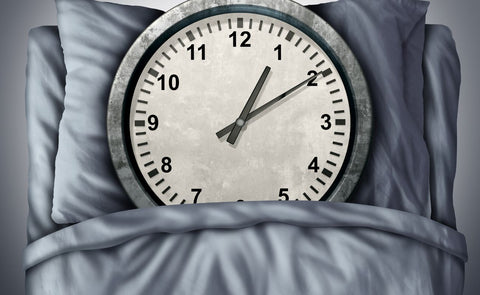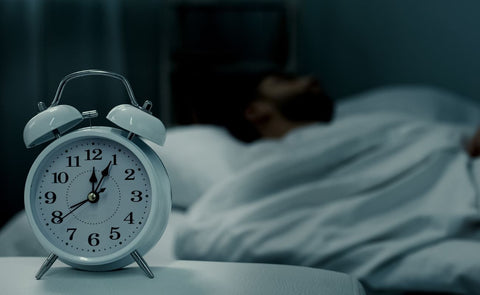Why the 7-Hour Question Matters
Is 7 hours of sleep enough for you? That question sits at the heart of most late-night Google searches about fatigue and mental fog. You’re told adults need “at least seven,” yet you still feel groggy when the alarm rings. Let’s break down how much sleep different age groups require, why quality changes the game, and how you can hit the sweet spot night after night.
Is 7 Hours of Sleep Enough for Your Age?
Age shapes your sleep targets more than any trending hack:
|
Age Group |
Recommended Hours |
|
Infant (4–12 mo.) |
12–16 (naps included) |
|
Toddler (1–2 yr.) |
11–14 |
|
Preschool (3–5 yr.) |
10–13 |
|
School-Age (6–12 yr.) |
9–12 |
|
Teen (13–18 yr.) |
8–10 |
|
Adult (18+ yr.) |
7 or more |
For most adults, seven hours is the bare minimum, not a luxury. Some folks—especially teens, shift-workers, or anyone running a sleep debt—need eight or even nine hours to feel sharp.
Quantity vs. Quality: The Hidden Metric
You could lie in bed for seven hours and still short-change your brain if the sleep is light or fragmented. Micro-awakenings you never remember can pull you out of deep sleep and tank daytime energy. Focus on:
-
Sleep depth: More slow-wave and REM equals better recovery.
-
Continuity: Fewer wake-ups, even brief ones, keep cycles intact.
-
Timing: A steady bedtime teaches your body when to power down.
When 7 Hours Might Backfire
Seven hours may not cut it if you:
-
Drag during daytime meetings.
-
Rely on caffeine past lunch.
-
Hit an afternoon energy crash so hard you could nap on your keyboard.
Regularly clocking only the minimum leaves no buffer for nights when stress, kids, or barking dogs steal a chunk of shut-eye. Over time, that can feed headaches, mood dips, and even raise risks for heart trouble and diabetes.
Why You’re Falling Short
-
Device glow: Blue light delays melatonin.
-
Late-day jolts: Caffeine, nicotine, or high-intensity workouts too close to bed.
-
Bedroom buzz: Noise, heat, or bright LEDs sabotage slumber.
-
Mind chatter: Stress keeps your brain on the night shift.
-
Undiagnosed disorders: Issues like sleep apnea can shred deep sleep even when you hit seven hours.
7 Simple Moves to Hit Your Ideal Sleep Time
-
Set a one-hour wind-down. Dim lights, put the phone face-down, and pick a relaxing ritual—reading, stretches, or a warm shower.
-
Keep a rock-solid schedule. Go to bed and wake up at the same times, weekend included.
-
Watch naps. Keep them under 30 minutes and before 3 p.m.
-
Move daily. Regular exercise helps you fall asleep faster but wrap up intense workouts at least two hours before bed.
-
Tame stimulants. Cut caffeine after lunch and swap late-night scrolling for a paperback.
-
Fine-tune your cave. Aim for a cool, dark, quiet room; blackout curtains and a white-noise app can work wonders.
-
Don’t just lie there. If you’re awake for 20 minutes, get up, do something calming, then try again.
Key Takeaways
-
Adults need seven hours minimum, but many thrive on eight or more.
-
Quality matters as much as quantity. Deep, uninterrupted sleep fuels energy and mood.
-
Lifestyle tweaks beat quick fixes. Consistency, a calming routine, and a sleep-friendly space help you nail your personal goal.
Sleep That Fits Your Life
So, is seven hours enough? Maybe—but only you can judge by how alert and upbeat you feel once the coffee wears off. Test your ideal window, lock in a routine, and watch your days get clearer, brighter, and way more productive.


